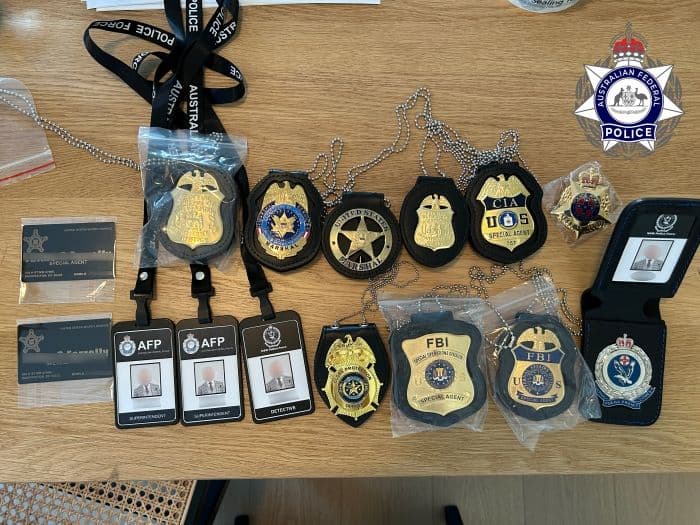We're loading the full news article for you. This includes the article content, images, author information, and related articles.
A new global taskforce is tackling online gangs coercing girls into violence, a trend Kenyan authorities are also combating as risks of digital exploitation escalate across East Africa.

GLOBAL - A stark warning has been issued by Australian Federal Police (AFP) about a disturbing new form of online gender-based violence where decentralised crime networks of young men are “hunting” and coercing pre-teen and teenage girls into performing acts of violence against themselves, their siblings, or pets. In a speech on Wednesday, 29 October 2025, AFP Commissioner Krissy Barrett described the phenomenon as a “twisted type of gamification,” where perpetrators, dubbed “crimefluencers,” gain status within their groups by sharing extreme content for their own amusement.
This global threat has prompted the creation of a new specialist unit, Taskforce Pompilid, to dismantle these networks. So far, the AFP has identified 59 alleged offenders in Australia and, in collaboration with international partners, has made three domestic and nine international arrests. The suspects are reportedly aged between 17 and 20. This development holds significant relevance for Kenya, where the Directorate of Criminal Investigations (DCI) and other agencies are increasingly battling the rise of online child exploitation.
According to Commissioner Barrett’s address to the National Press Club, these online gangs operate with a culture similar to multiplayer online games, using popular platforms like Roblox, Discord, and Telegram to stalk and recruit their victims. The perpetrators, predominantly young men from Western, English-speaking backgrounds, are not motivated by financial gain or sexual gratification but by a desire for online popularity and “fun.” Their ideologies are a disturbing mix of nihilism, sadism, Nazism, and satanism.
The victims are typically vulnerable girls, often with low self-esteem, mental health challenges, or a history of self-harm, who are seeking connection online. To be accepted into the networks, perpetrators are often required to complete tasks, such as providing videos of self-harm or other gory content. “In this new, twisted type of gamification, perpetrators reach a status or new level in their group when they provide more content showing more extreme acts of depravity and sadism,” Barrett stated. In some instances, victims are traded among perpetrators like assets in a video game.
To combat this, the AFP is collaborating with Microsoft to develop an artificial intelligence tool capable of interpreting Gen Z and Alpha slang and emojis in encrypted chats to identify and save children from harm earlier.
While the specific “gamification” trend highlighted by the AFP has not been explicitly reported in Kenya, the underlying issues of online grooming and child sexual exploitation are a growing concern. A 2024 report by ChildFund International and the Africa Child Policy Forum identified Kenya as a hotspot for online sexual abuse, with up to 13% of children aged 12-17 having been blackmailed or threatened into sexual acts online. Another study noted that 7% of Kenyan children had their sexual images shared without consent.
Kenyan authorities are actively working to address these digital threats. The DCI’s Anti-Human Trafficking and Child Protection Unit (AHTCPU) is a specialised branch focused on tackling online child sexual exploitation and abuse (OCSEA). Furthermore, Kenya's recently amended Computer Misuse and Cybercrimes Act (2024) introduces stricter penalties for cyber harassment, online extremism, and the distribution of obscene materials, aiming to protect children. Government Spokesperson Isaac Mwaura confirmed the law strengthens Kenya's capacity to combat threats like child pornography and online harassment.
Regionally, the urgency of the issue was recognised with the recent launch of the Africa Taskforce on Child Online Protection by UNICEF and the mobile network operators' association GSMA, a multi-stakeholder platform to coordinate digital safety strategies across the continent.
The Australian investigation underscores a global challenge for law enforcement and a critical call to action for parents and guardians. Commissioner Barrett stressed the importance of parental awareness, stating, “If it used to take a village to raise a child, because of advances in technology, it now takes a country to keep them safe.” The methods used by these “crimefluencers” are insidious, exploiting the very platforms children use for socialising and entertainment.
In Kenya, organisations like Childline Kenya offer toll-free helplines (116) for reporting abuse, and officials urge parents to maintain open communication with their children about their online activities. The rise of technology-facilitated gender-based violence is a worldwide phenomenon that requires a coordinated response from law enforcement, tech companies, and communities to protect the most vulnerable. The new Australian taskforce and Kenya's enhanced legal frameworks represent crucial steps in this ongoing global fight.
Keep the conversation in one place—threads here stay linked to the story and in the forums.
Sign in to start a discussion
Start a conversation about this story and keep it linked here.
Other hot threads
E-sports and Gaming Community in Kenya
Active 9 months ago
The Role of Technology in Modern Agriculture (AgriTech)
Active 9 months ago
Popular Recreational Activities Across Counties
Active 9 months ago
Investing in Youth Sports Development Programs
Active 9 months ago